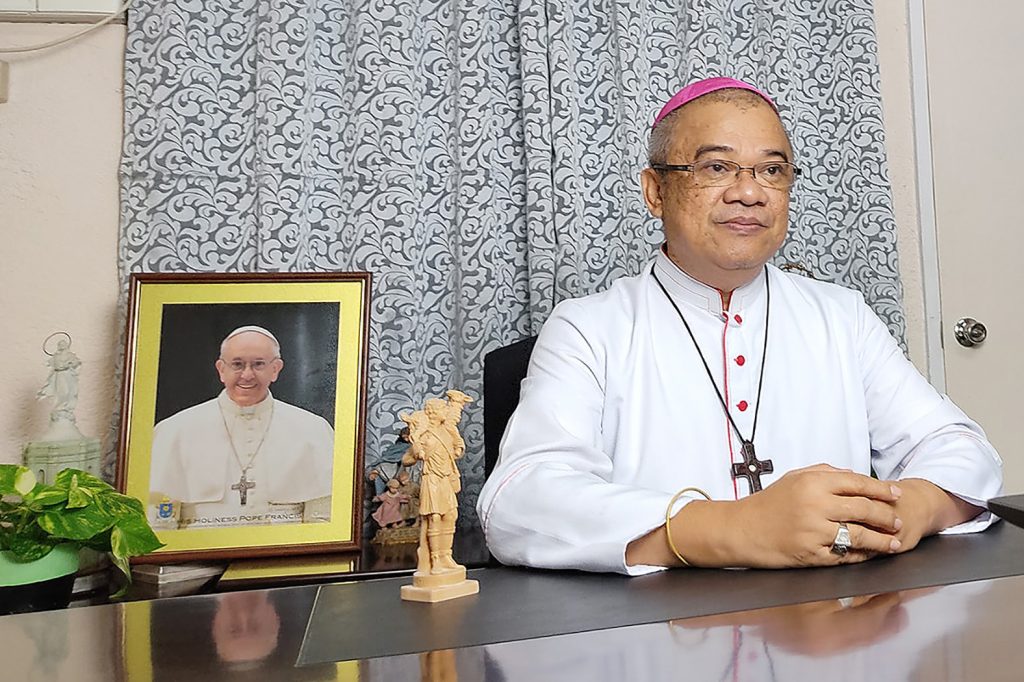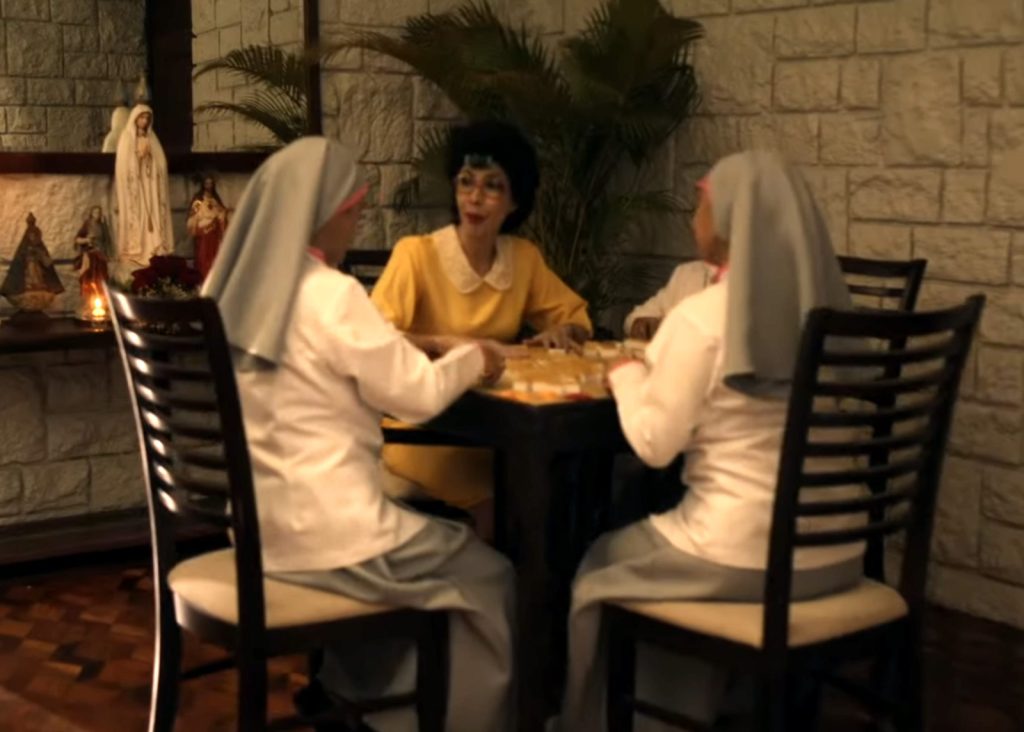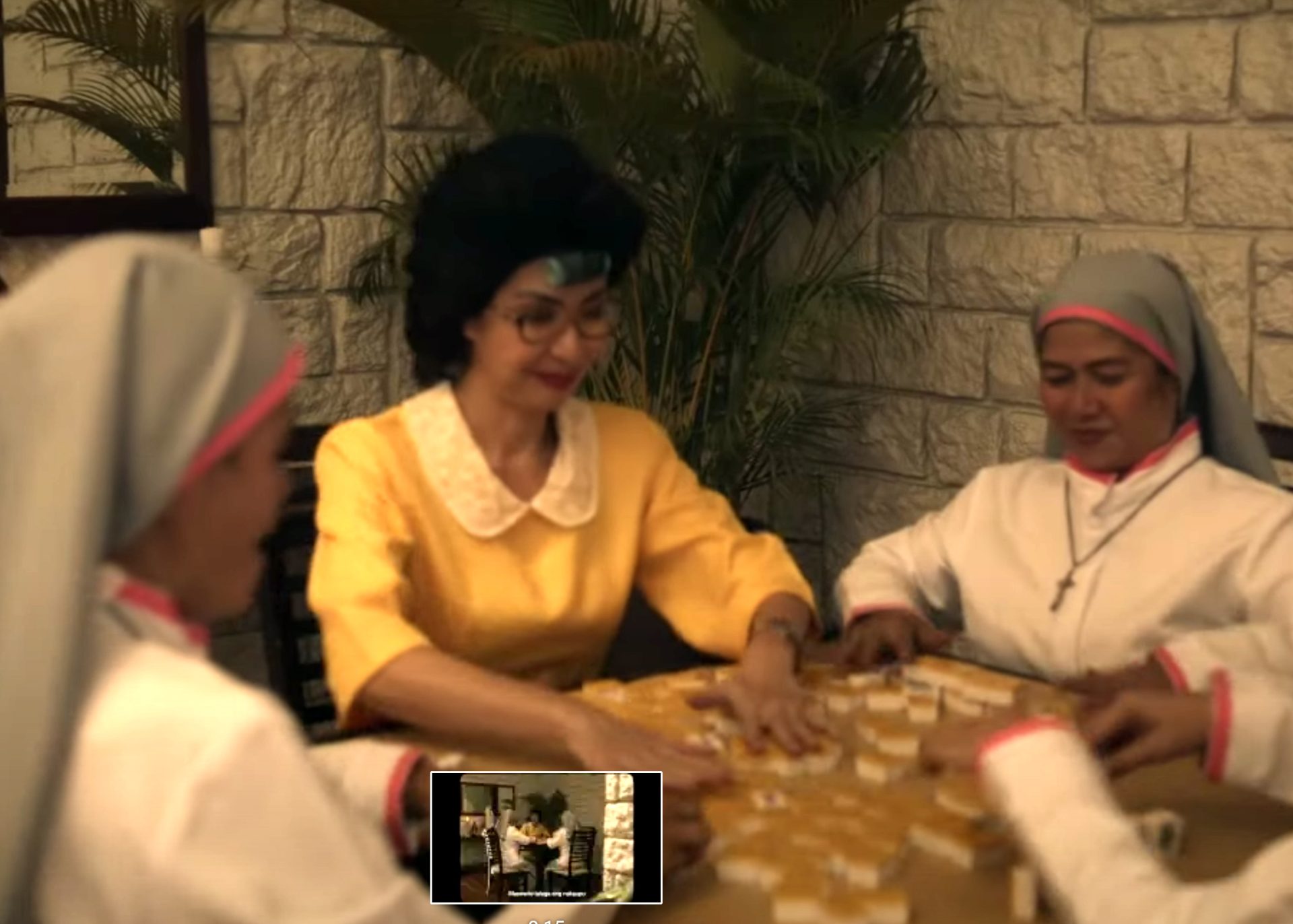A Catholic bishop in the central Philippines called for a “boycott” of a controversial movie that depicts in one scene nuns playing mahjong, a popular social gambling game.
“The producer, scriptwriter, director and those promoting this movie should publicly apologize to the Carmelite nuns, to President Cory Aquino’s family and to the Filipino people,” said Bishop Gerardo Alminaza of San Carlos.
In a report on CBCP News, the prelate described the movie “Maid in Malacañang” as “shameless.”
“Would the MTRCB act responsibly on this and perform its mandated duty?” said the bishop, referring to the Movie and Television Review and Classification Board, which is under the Office of the President.
Earlier, Carmelite nuns in the province of Cebu decried what they described as the “malicious” depiction of nuns in the movie, saying the film “attempt(s) to distort history.”
“The attempt to distort history is reprehensible,” read a statement signed by Sister Mary Melanie Costillas, OCD, prioress of the Carmelite Monastery in Cebu City, on Tuesday, August 2.
“Depicting the nuns as playing mahjong with Cory Aquino is malicious. It would suggest that while the fate of the country was in peril, we could afford to leisurely play games,” added the nun’s statement.
A trailer of the movie, which was set in the aftermath of the 1986 Philippine elections, shows nuns playing mahjong with the character of former president Cory Aquino.

The movie “Maid in Malacañang” supposedly reenacts the last 72 hours of the family of the deposed dictator Ferdinand Marcos Sr. in the Philippines before fleeing to Hawaii.
A scene in the movie shows the character of Aquino ordering to let the Marcoses leave the country through a phone call and then playing mahjong, a social gambling game, with nuns.
Sister Costillas said that contrary to the portrayal shown in the movie, the nuns were not playing mahjong with Aquino while the country was under crisis.
The nun said Aquino sought protection from the Carmelite sisters on Feb. 22, 1986, when after the late dictator issued a “shoot-to-kill” order against her.
The Carmelite sister said the nuns were praying — instead of playing Mahjong — while the late president feared for her safety.
“The truth was that we were then praying, fasting, and making other forms of sacrifices for peace in this country and for the people’s choice to prevail,” recalled Sister Costillas.
She said they “prayerfully discerned” that the risk of having Aquino in the convent was “worth it,” adding that the sisters “were ready to defend her at all costs.”
The nun’s statement said the movie “trivialize(s)” the congregation’s contributions to restoring the country’s democracy.
“We are praying for the unity of Filipinos. But this unity can only be built on truth and not on historical distortion,” part of the statement read.

Sister Costillas said no one consulted the Carmelites before the movie production was done.
“Any serious scriptwriter or movie director could have shown such elementary diligence before making such a movie,” she said, adding that many of the nuns in the Carmelite Monastery in Cebu in 1986 “are still very much alive and mentally alert.”
She said that although the movie shows that the nuns are wearing brown religious habits, “the allusions to the Carmelite Order in Cebu is too obvious for anyone not to see.”
In the Archdiocese of Cebu, Monsignor Joseph Tan, the archdiocese spokesperson, said the movie “is clearly a fictional rendition of history.”
“It may be based on the events that took place in history, but there is always a certain amount of poetic license, so much so, that the details may necessarily be as accurate as actually unfolded in the history,” the priest was quoted as saying in a media interview.







